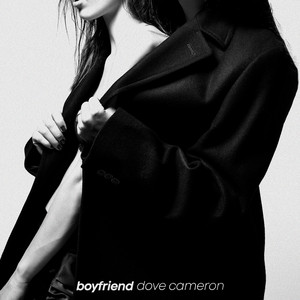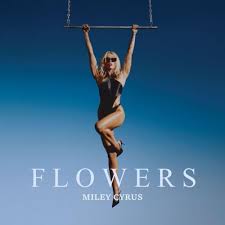 Sabrina Carpenter’s “Espresso” isn’t just a sugary pop treat with a catchy hook; it’s a mission statement disguised as a bop. Released in 2024, this electrifying track has catapulted the former Disney Channel star into the highest echelon of contemporary pop music, cementing her transition from underdog darling to bona fide pop provocateur. What makes “Espresso” so undeniably potent isn’t just its thumping bassline or its cheeky lyrics—though both are major parts of its appeal—but its cultural resonance and its encapsulation of an artist in total control of her own narrative. The song may clock in under three minutes, but its impact lingers like a triple shot of caffeine on an empty stomach.
Sabrina Carpenter’s “Espresso” isn’t just a sugary pop treat with a catchy hook; it’s a mission statement disguised as a bop. Released in 2024, this electrifying track has catapulted the former Disney Channel star into the highest echelon of contemporary pop music, cementing her transition from underdog darling to bona fide pop provocateur. What makes “Espresso” so undeniably potent isn’t just its thumping bassline or its cheeky lyrics—though both are major parts of its appeal—but its cultural resonance and its encapsulation of an artist in total control of her own narrative. The song may clock in under three minutes, but its impact lingers like a triple shot of caffeine on an empty stomach.
From the opening lines, “I’m working late ‘cause I’m a singer,” Carpenter sets the tone for a piece that blurs the line between autobiography and fantasy. It’s an assertion of identity delivered with a wink and a smirk. The beat, an irresistible fusion of bubblegum pop, synth textures, and dancefloor-ready rhythm, feels like it belongs to the same lineage as early 2000s Britney Spears or Robyn, but filtered through the knowing lens of someone who grew up watching that era unfold. If anything, “Espresso” embodies the pop landscape of the 2020s: hyper-literate, internet-savvy, meme-aware, and gloriously unapologetic.
What distinguishes the song from the thousands of others that attempt the same balance is Carpenter’s self-awareness. While many artists lean into a carefully curated image, Carpenter’s charm lies in her performative candidness. She sings about stealing someone’s boyfriend while referencing espresso not just as a metaphor for herself, but as a symbol of heightened attention, addiction, and craving. “I’m what keeps him up at night,” she croons, with a grin audible in her voice. It’s simultaneously playful and threatening—she knows she’s the object of obsession and she relishes the control that comes with it.
There’s a deeper cultural alchemy at work in “Espresso,” one that taps into the zeitgeist of 2020s pop feminism. Carpenter’s confident persona, sharpened by years of quietly climbing the entertainment ladder, emerges fully formed in this track. In the same way Taylor Swift shifted gears with “Blank Space” or Olivia Rodrigo exploded with “Good 4 U,” “Espresso” is Carpenter’s declaration that she no longer needs to be seen through the lens of others’ expectations. She can be brash, sexy, funny, and even a little mean—all without apology. There’s a freedom in that which resonates with her generation of listeners, especially young women navigating a world where self-presentation is both weapon and armor.
Production-wise, the song is a masterclass in maximalist minimalism. There’s nothing extraneous—every synth stabs with intent, every beat hits its mark, and Carpenter’s vocals are layered to perfection. There’s a deliberate crispness to the mix, courtesy of Julian Bunetta, who brings a veteran pop polish to the track while allowing Carpenter’s personality to remain front and center. The bridge, rather than slowing down, builds in tension and energy, culminating in a final chorus that feels as effervescent as the first. That cyclical structure mimics the feeling of caffeine itself—an ever-escalating rush that never quite crashes.
Lyrically, “Espresso” is both simple and sophisticated. Lines like “That’s that me espresso” may read as nonsensical at first glance, but they encapsulate the blend of irony and sincerity that defines much of Gen Z’s cultural output. She’s not really saying she’s a cup of coffee, of course—she’s positioning herself as a stimulant, a necessity, something addictive and desirable. The repetition is hypnotic, like a jingle you can’t shake or an inside joke that spreads through social media like wildfire. And that’s where the brilliance lies: the song was engineered, whether consciously or not, for virality.
It’s impossible to ignore the visual and performative components of the “Espresso” phenomenon. Its music video, with its vintage swimsuits, seaside frolics, and pastel-drenched sets, draws inspiration from 1960s cinema and Instagram-era aesthetics alike. Carpenter plays both ingenue and villainess, reveling in the fantasy of her own creation. Her expressions are theatrical and knowing, perfectly choreographed to every beat. The choreography—loose, sensual, teasing—adds another layer of allure to the track’s auditory seduction. It’s pure pop theater, and Carpenter is in full command of the stage.
But the success of “Espresso” also speaks to something larger about pop music’s current moment. We are in an age of self-reference, where the line between parody and authenticity has all but disappeared. Carpenter thrives in this ambiguous space. She’s sincere enough to make you believe every word and cheeky enough to make you question her intentions. That tension fuels repeated listens. Is she mocking the genre’s tropes or fully embracing them? The answer is yes to both, and it’s that duality that makes “Espresso” so engaging.
At its heart, the song is about power—owning it, flaunting it, playing with it. By equating herself to espresso, Carpenter taps into a long-standing tradition in pop music: the use of metaphor to assert dominance. Where Prince once declared himself a sex symbol through flowers and lace, and Beyoncé used lemonade to symbolize betrayal and vengeance, Carpenter offers up something modern and caffeinated. The metaphor is unexpected, almost absurd, but that’s the point. It’s not about subtlety—it’s about impact.
Live performances of “Espresso” have only added to its legend. On late-night television, at festivals, and even in surprise pop-ups, Carpenter delivers the song with an energy that’s both chaotic and tightly controlled. Her stage presence has evolved significantly since her early days on Disney’s “Girl Meets World.” There’s a new confidence, an almost punk-like disregard for expectations, tempered by the precision of someone who knows exactly what she’s doing. She flips her hair, winks at the camera, and leans into every lyric as if it’s both a joke and a truth bomb.
Critics, too, have taken notice. “Espresso” has received widespread acclaim for its inventiveness, its catchiness, and its bold embrace of pop frivolity as something worth taking seriously. Many have compared it to early Lady Gaga or Charli XCX—a comparison Carpenter herself might welcome. What sets her apart, though, is her ability to walk the tightrope between mass appeal and artistic individuality. “Espresso” isn’t just a song for the charts; it’s a statement of intent. Sabrina Carpenter is no longer just a pop hopeful—she’s a pop auteur.
The commercial success of the song has been staggering. It has dominated streaming platforms, climbed charts globally, and spawned countless TikTok trends. Teens, influencers, and even celebrities have lip-synced to its lines, danced to its beat, and mimicked its swagger. But far from being just another flash-in-the-pan viral moment, “Espresso” has legs. Its staying power lies in its simplicity and confidence—it doesn’t try to do too much, but it does everything right.
Culturally, “Espresso” arrives at a time when audiences are hungry for fun. After years of introspective, moody pop and pandemic-era ballads, there’s a collective thirst for music that makes you feel alive. Carpenter’s offering is like a shot of adrenaline. It reminds listeners that pop doesn’t need to be self-serious to be impactful. Sometimes the most meaningful statements are wrapped in the gloss of a three-minute dance track.
That said, to reduce “Espresso” to a mere party anthem would be to miss its subtle genius. Beneath its glossy surface is a roadmap of where pop music might be headed—a place where humor, empowerment, and sensuality coexist without contradiction. It also highlights a key shift in how female artists are reclaiming narrative control. Carpenter doesn’t just flirt with the camera or the audience—she orchestrates the entire performance. She’s the subject and the director, the muse and the mastermind.
“Espresso” may not be the most lyrically profound song ever written, but it doesn’t need to be. Its brilliance lies in its attitude, its aesthetic, and its sheer sense of fun. It proves that pop music, when done well, can be both escapist and empowering. And for Sabrina Carpenter, it’s a moment of clarity—a definitive arrival. She has always had the talent, but now she has the song that defines an era. “Espresso” is a caffeinated triumph, a dizzying ride through pop euphoria, and a wake-up call to anyone who underestimated her.
If this song is any indication, Sabrina Carpenter isn’t slowing down. She’s working late, stealing scenes, owning stages, and keeping the world up at night. Like the perfect cup of espresso, she’s strong, bold, and just a little bit addictive. And that’s exactly how she wants it.


